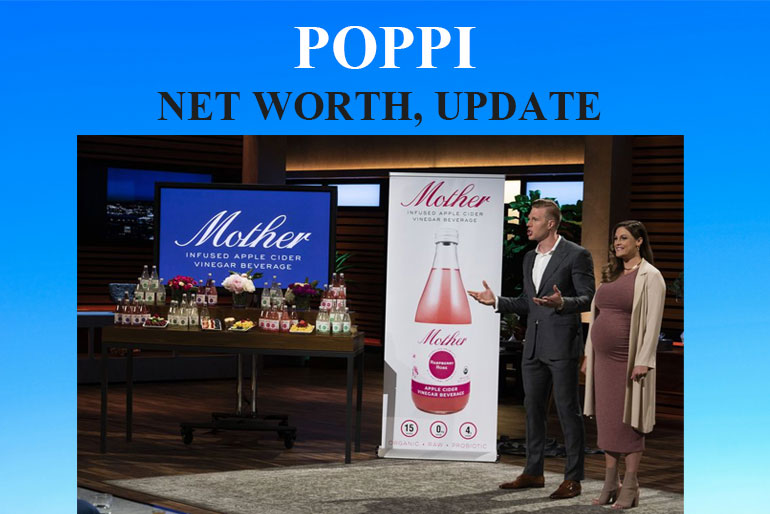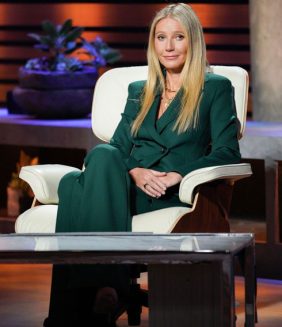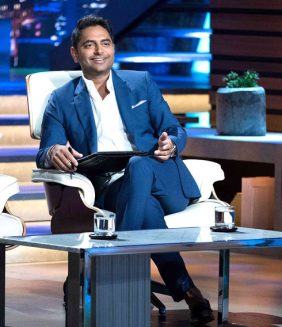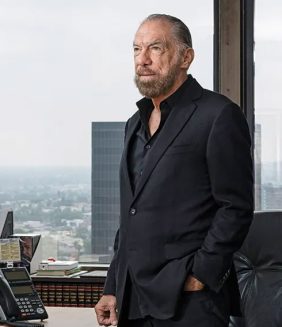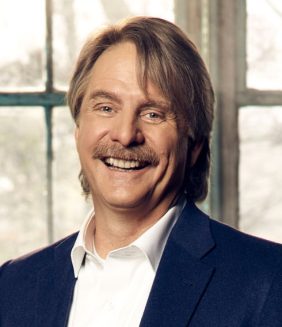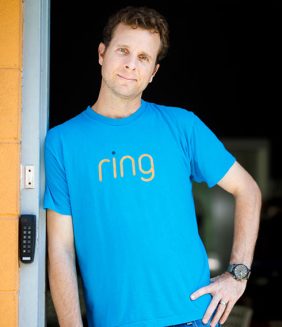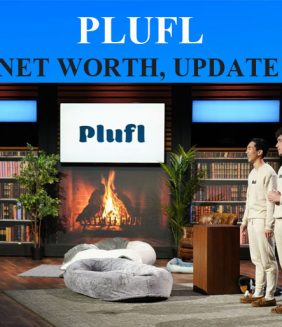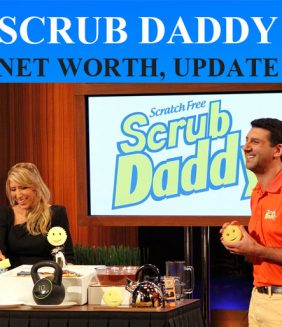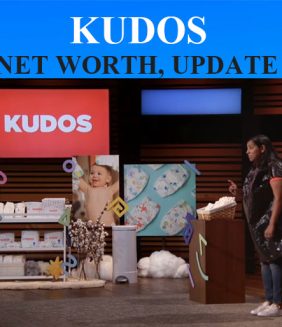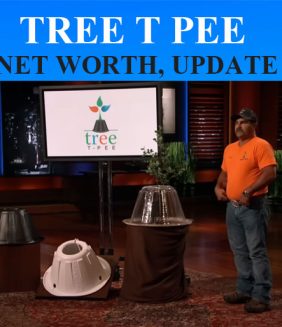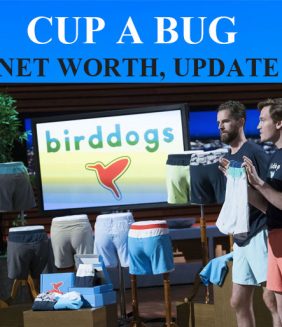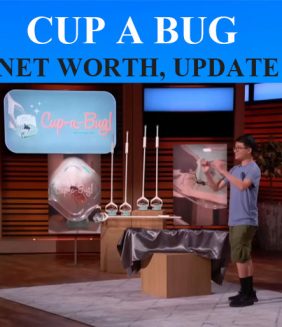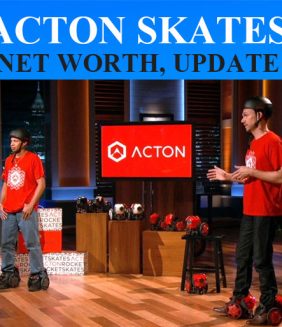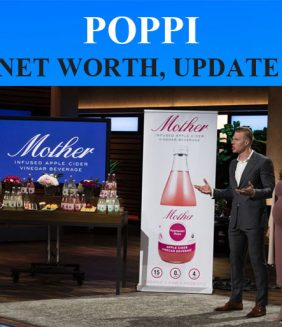Allison and Stephen Ellsworth began brewing apple-cider-vinegar drinks at home in 2016 because Allison’s gut issues were getting in the way of everyday life. Friends kept asking for bottles, so the couple turned the hobby into a farmers-market side hustle and called it Mother Beverage. By late 2018 they had sold roughly $500,000 worth of product and were bottling in a small facility they built themselves.
The Shark Tank pitch (Season 10, Episode 8)
On the December 2018 episode they asked the Sharks for $400,000 in exchange for 10 %. Most Sharks balked, but guest Shark Rohan Oza—known for vitamin-water successes—countered with $400,000 for 25 %, and the Ellsworths said yes on the spot. The on-air deal valued the young company at just $1.6 million.
Goodbye “Mother,” hello Poppi
Oza quickly pushed for a rebrand that felt more fun on a store shelf. Within a year, flashy cans labeled Poppi hit Whole Foods, and the founders reformulated flavors to give each can only 5 grams of sugar. The short, playful name helped buyers remember the drink, and retail buyers liked the bright packaging.
Funding bursts & retail expansion
Poppi raised several rounds after Shark Tank:
| Year | Round | Lead investor | Amount disclosed | Notes |
|---|---|---|---|---|
| 2020 | Seed/Bridge | CAVU Consumer Partners | $13.5 M | Backed early growth |
| 2022 | Series B | CAVU again | $25 M | Total raised crossed $40 M |
Cash went straight into national distribution. By 2024 Poppi was in 36,000 U.S. stores, from Target to 7-Eleven, and even stadium concession stands.
Viral moment on TikTok
In 2021 a simple “gut-check” taste-test video exploded on TikTok, driving thousands of new shoppers to try Poppi. The brand leaned in, hiring micro-creators to show day-in-the-life clips featuring a can in hand. Social buzz—not polished “ads”—did much of the heavy lifting, especially with Gen Z.
By the numbers (latest full year – 2024)
- Estimated revenue: $500 million
- Prebiotic-soda market share: 19 %
- Headcount: ~ 800 employees on six continents
- Skus: 13 sparkling flavors plus limited-runs such as Ginger Lime Swell
Bumps in the road
Rapid growth drew scrutiny. In mid-2024 a proposed class-action lawsuit alleged the drinks over-promised on health benefits tied to inulin fiber. Poppi denied wrongdoing, and as of August 2025 the case is still in early motions.
The PepsiCo buyout (March 17 → closed May 19 2025)
The big news: PepsiCo agreed to purchase Poppi for $1.95 billion. After expected $300 million in tax benefits, Pepsi’s net cost lands near $1.65 billion. The deal gives the soda giant a foothold in the “better-for-you” space while letting Poppi keep its Austin headquarters and existing team.
So… what is Poppi’s “net worth” now?
- Brand/company value: The sale price sets a clear external marker—around $1.95 billion.
- Founders’ paper payout: The Ellsworths’ exact share is private, but industry chatter suggests they retained roughly 15% combined after dilution through six funding events. That converts to $290 million pre-tax (before earn-outs).
- Rohan Oza’s return: His original 25% was also diluted; analysts peg his exit stake near 12%, equal to $235 million—a 590-fold jump from the $400k check.
- Outside investors: CAVU and other funds likely saw 8-10× on later-stage money.
These estimates rely on public deal terms and typical venture dilution math; the real figures could swing higher or lower once escrow, taxes, and performance bonuses settle. Nonetheless, Poppi is now one of Shark Tank’s biggest financial victories.
Life under PepsiCo
PepsiCo says Poppi will run as a “founder-led business unit,” similar to how it handled SodaStream. Expect broader flavor innovation, more international launches, and cross-promotion in Pepsi’s food-service network. The beverage giant also hinted at bringing Poppi’s prebiotic tech into other products down the line.
What’s next for the founders?
Allison remains the friendly face on social, while Stephen is focusing on R&D within Pepsi’s new-age-drink portfolio. Both have said they’ll use part of their windfall to invest in other health-forward start-ups.
Lessons for entrepreneurs
- Solve your own pain point. A genuine personal need resonated with early adopters.
- Story beats science-speak. Explaining “prebiotic fiber” in plain English invited curiosity rather than confusion.
- Rebrands can unlock growth. A punchy name and colorful can turned a niche tonic into a mainstream soda.
- Social platforms are free focus groups. TikTok reactions guided flavor tweaks in real time.
- Strategic investors matter. Oza opened retail doors and cut years off the learning curve.
- Exit timing matters. Poppi sold while revenue was doubling annually, giving Pepsi a reason to pay a premium.
Final thought
From homemade vinegar drinks to a multibillion-dollar exit in under ten years, Poppi shows how a clear problem-solution story, smart marketing, and the right partners can turn fizzy dreams into serious fortunes. The road had hiccups—lawsuits, supply chain nightmares, skeptical sharks—but the founders kept the vision simple: soda that tastes good and does good for your gut. Judging by the size of Pepsi’s check, that vision is now worth almost $2 billion.


